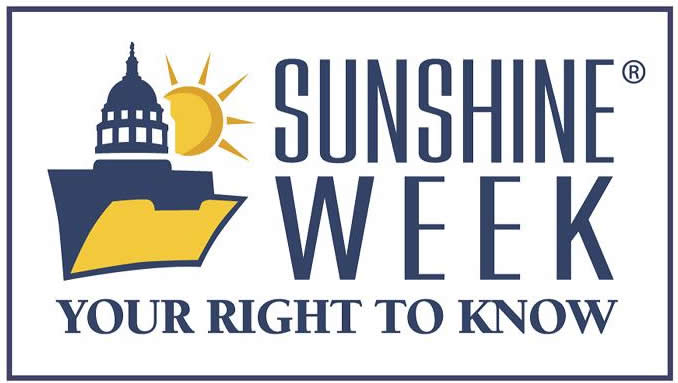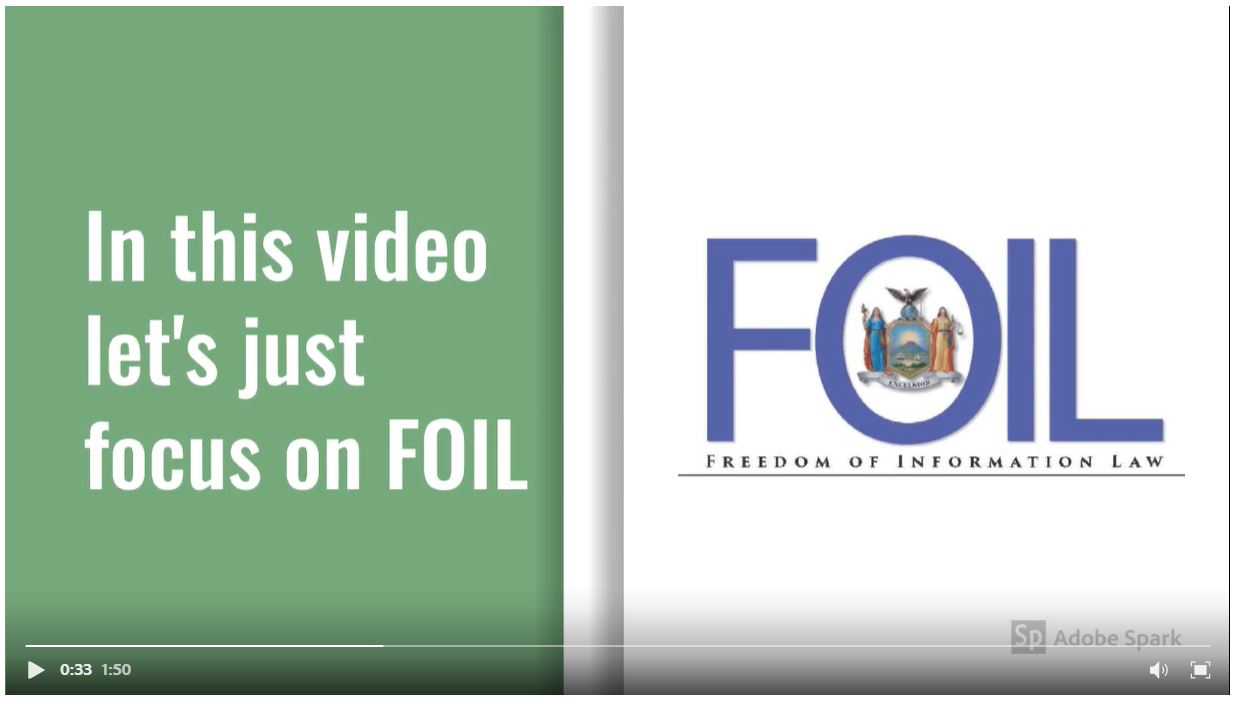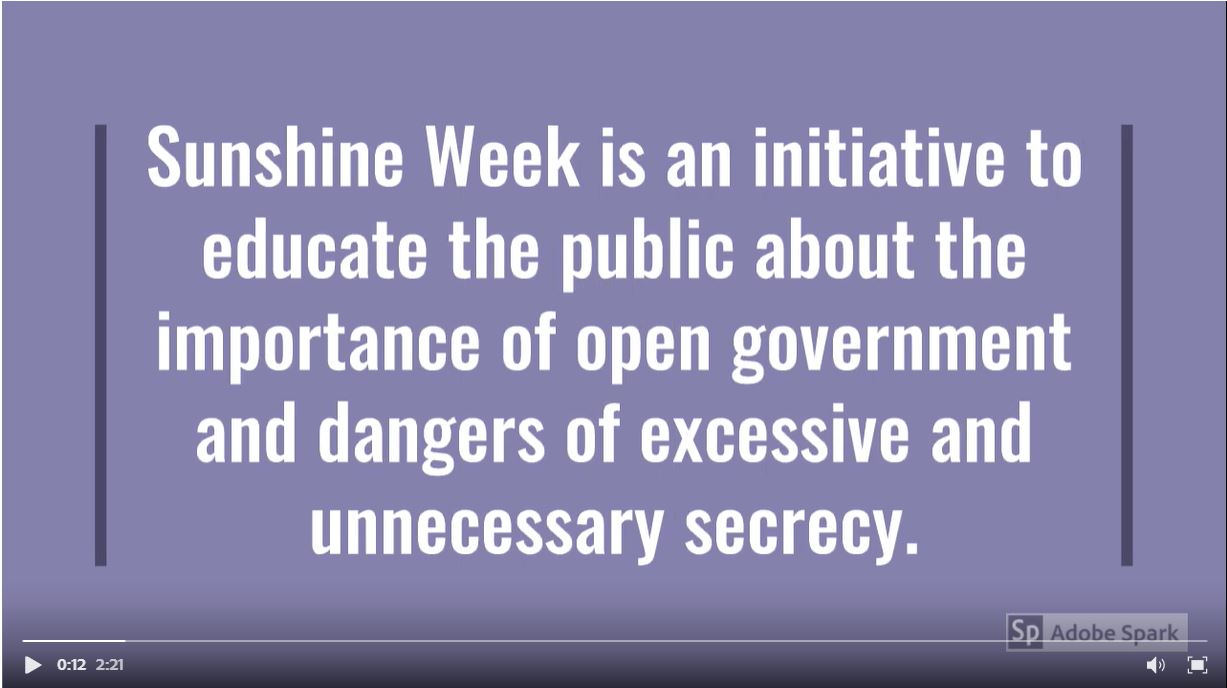|
New York News Publishers Association |
|||
Sunshine Week 2026 - March 15-21

Sunshine Week is a national initiative to promote dialogue about theimportance of open government and freedom of information. Participants include news media, civic groups, libraries, nonprofits, schools and all others interested in the public’s right to know. Sunshine Week seeks to enlighten and empower people to play an active role in their government at all levels, and to give them access to information that makes their lives better and their communities stronger.
 Click here to access a 10-part series of public service announcements in PDF format (2 columns x 6 inches) that can be used to promote Sunshine Week. A sample of one is pictured to the right. (Free for NYNPA member publications to share in print or online - all others contact Mary Miller at mmiller@nynpa.com for affordable copyright pricing).
Click here to access a 10-part series of public service announcements in PDF format (2 columns x 6 inches) that can be used to promote Sunshine Week. A sample of one is pictured to the right. (Free for NYNPA member publications to share in print or online - all others contact Mary Miller at mmiller@nynpa.com for affordable copyright pricing).
Click here to access a teaching guide including graphic organizers highlighting Freedom of Information & Sunshine Week.
Click on the image below to view a short video providing a basic summary of New York state's Freedom of Information Law (FOIL).
Click on the next image to view a short video that highlights New York State's Open Meetings Law.
As editorials and editorial cartoons become available, the content will be posted below. This content is available for all NYNPA member publications to reprint with attribution to increase public awareness of Sunshine Week and the public's right to know. All contributors should sent editorial text or cartoon images to Mary Miller at mmiller@nynpa.com.

Cartoon courtesy of Adam Zyglis, The Buffalo News
Please note: Previous Sunshine Week content is still available for download and use.
Click here to access the eight newspaper in education features created for 2012 (3 column x 8 inches) - an overview of NYS FOIL, Open Meetings, How to gain access to records and one freature on Freedom of Information and NYS Courts.
Click here to access the five-part series of features highlights just a few of the websites with reports and other data that may be of interest to students and the general public. Graphic organizers to accompany these features are also available here as PDF download. The topics included:
• What is “E-Government”? – A brief summary of our “Cyber Sunshine” focus
• Vehicle Safety – Highway Safety Data
• Food Safety – Restaurant Inspection Reports
• School Safety – Violence and Disruptive Incident Report
If you'd like to make a donation to the NYNPA Newspaper In Education program, simply press the Donation button below.
New York News Publishers Association, Inc.
Phone/Fax (518) 449-1667 - Toll-free: (800) 777-1667


